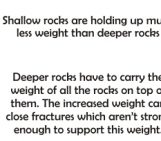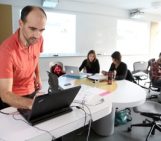
National Lampoon’s European Vacation was one of my favorite movies growing up but I hope it is not what happens over the next few weeks. I am visiting colleagues and giving talks at ETH Zurich, Utrecht University, Gottingen University, and then EGU in Vienna. Four countries in three weeks! I thought it might be useful to list my talks and dates here for people who might be interested…
ETH Zurich – Tuesday April 15
From global groundwater depletion to the sustainable use of groundwater systems
Groundwater—the world’s largest freshwater resource—is critically important for irrigated agriculture and hence for global food security. Yet depletion is widespread in large groundwater systems in both semi-arid and humid regions of the world. Excessive extraction for irrigation where groundwater is slowly renewed is the main cause of the depletion, and climate change has the potential to exacerbate the problem in some regions. Globally aggregated groundwater depletion contributes to sea-level rise, and has accelerated markedly since the mid-twentieth century. But its impacts on water resources are more obvious at the regional scale, for example in agriculturally important parts of India, China and the United States. Food production in such regions can only be made sustainable in the long term if groundwater levels are stabilized. To this end, a transformation is required in how we value, manage and characterize groundwater systems. Technical approaches—such as water diversion, artificial groundwater recharge and efficient irrigation—have failed to balance regional groundwater budgets. They need to be complemented by more comprehensive strategies that are adapted to the specific social, economic, political and environmental settings of each region.
Utrecht University – Tuesday April 22
Multidisciplinary, multi-scale hydrogeology: localized flow around fault zones, shale gas contamination and global groundwater sustainability
Groundwater, the world’s largest freshwater resource is critically important for irrigated agriculture, ecosystems and as a drinking water resource. This talk explores three question at the interface of hydrogeology, structural geology, geochemistry, engineering, geomatics and sustainability science: 1) Do fault zones affect regional groundwater flow? 2) Could hydraulic fracturing lead to contamination of aquifers via faults? And 3) Is global groundwater use sustainable? The first question is examined using radon gas tracers into show that the presence of fault zones does not impact the rate of groundwater discharge to lakes. This suggests that shallow, old faults are hydrologically insignificant in the Appalachian orgogen. The second question uses numerical models to quantify the factors that control contaminant transport potential. We find that long-term contaminant transport from shale gas horizons to shallow aquifers occurs in specific conditions with the most critical factors being the location of the hydrofracturing zone relative to the fault and top of shale, the overpressure of shale and the permeability of the fault zone. The third question uses the newly proposed groundwater footprint to map groundwater stress globally.
Gottingen University – Thursday April 24 (same talk as Utrecht; details here)




